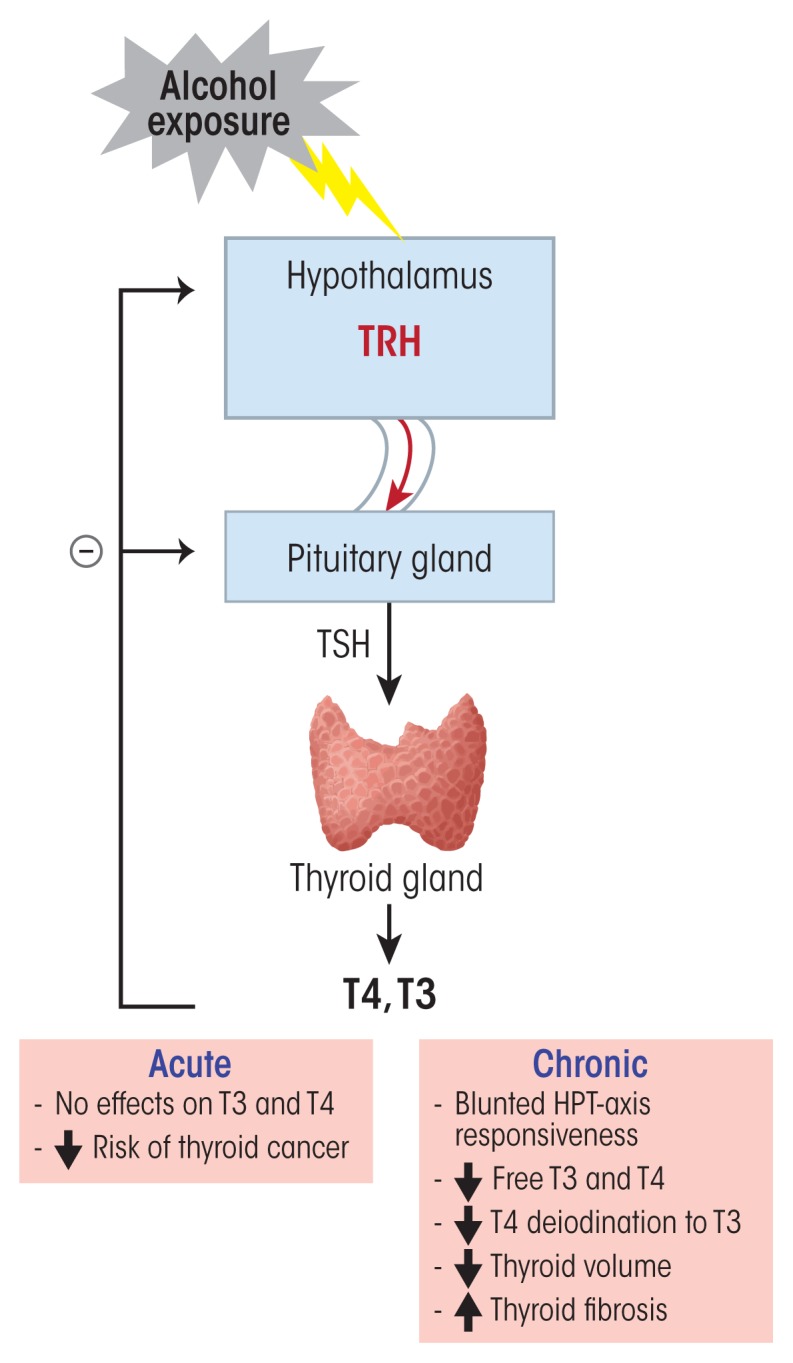Figure 3.

Alcohol’s effects on the hypothalamic–pituitary–thyroid (HPT) axis. Thyrotropin-releasing hormone (TRH) released from neurons in the hypothalamus stimulates thyrotropic cells in the anterior pituitary to produce and secrete thyroid-stimulating hormone (TSH). TSH then stimulates the synthesis and secretion of thyroxin (T4) and its active form, triiodothyronine (T3), from the follicular cells of the thyroid gland. Circulating T3 comes from conversion of T4 by enzymes called deiodinases in the liver. T3 and T4 can control their own release by negative feedback at the hypothalamus and the pituitary and inhibit TRH and TSH release. Acute alcohol exposure has no effect on HPT-axis function. However, chronic alcohol exposure leads to a blunted TSH response to TRH, as well as to decreased free T3 and T4, decreased deiodination of T4 to T3, decreased thyroid volume, and increased thyroid fibrosis.
